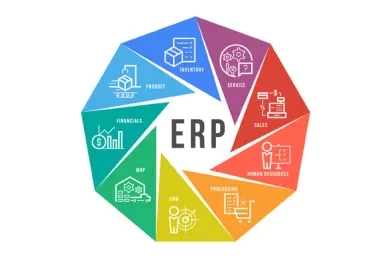It's All about the Cash in ERP!
Credit control, cash control, revenue forecasting are at the heart of profitability...and corporate survival.
Multinational or SME, the cash flow problems are essentially the same. Typically, for example, the salaries are due to be paid on the 27th of the month—and debtors only pay on the last day of the month or later. Direct debits and standing orders are coming up at intervals through any trading month: will we have money in the bank to pay them? More difficult questions arise about longer term cash forecasting, factors like seasonal patterns—severely reduced cash flow in July/August or Christmas surges but January blues. Some firms in non-consumer retail have cash-barren Decembers, yet with all of their employees due bonuses of various kinds.
That’s management, the old-fashioned but perpetual challenge. It is the core task of financial directors and that still essential job of credit control. Modern business has many glamorous and innovative aspects. But the humdrum task of financial control is still at the core of staying in business. ERP stands for Enterprise Resource Planning, and the primary, fundamental, essential resource of any business is finance. Money. Cash. Credit.

Liquidity and Opportunity
But it is not just avoiding cash flow problems. There is a positive side which involves matching opportunity with liquidity. Some of the most successful brands on the planet have cash reserves that enable them to swoop on market opportunities or new lines of development by acquisition, sometimes to the extent of billions—of dollars, most commonly. Sharp timing and market judgement are among the keys to success. But such success is only possible when you have the financial resources available.
That is why the financial core of smart ERP systems today offers much more than accounting and historical reports, accounts payable and receivable. ‘Historical’ may be a record of the last few seconds with real-time systems. But it is vital for any enterprise to look forward, to scan the horizon for any possible cash or liquidity problems in the future. The potential negatives always have priority in financial management: everyone has ideas about what to do with a cash surplus, but only the CFO has (or acknowledges) responsibility for a liquidity problem.
The key value of ERP is that it is integrated across all the activities in the business. So, forecasting from all divisions in the organisation—or across a group—can be combined. The obvious example is sales prediction, up or down, by category, region or any criteria. Surges in sales are not always positive. A retail Christmas can be forecast but an unexpected peaking of online Web sales can bring financial problems as well as income. Fulfilment costs may rise substantially, for instance, or suppliers may charge a legitimate premium for faster than usual production and delivery.
Foreseeing Liabilities
Liabilities across the board can be forecast also, from projects to payroll. Projects are by definition temporary and the finance department has to provide for their commencement, variabilities in ongoing expenditure and the outgoings relief on completion. HCM and payroll are inevitably a major part of the outgoings in any organisation. Corporate expansion can bring the costs forward of the anticipated gains while seasonality of employment is a key factor in many sectors, not always synchronous with the increased turnover which it serves.
In a simple sense, accounting is all about the past and financial management is about the future. ERP combines both views, with a comprehensive integration of all the organisation’s activities. The forecasting tools—often tailored to the particular activity—enable the CFO and the executive board to anticipate the manageable future. That is the core and key benefit, combined with revision according to any new data at the click of a button. Set up correctly and smartly it is a powerful aid to decision making—and avoiding any financial embarrassment.
This blog post was written by Sean Jackson, Principal Consultant at Lumenia Consulting. If you would like further information on ERP or any aspect of ERP, please send an e-mail to Sean Jackson.


